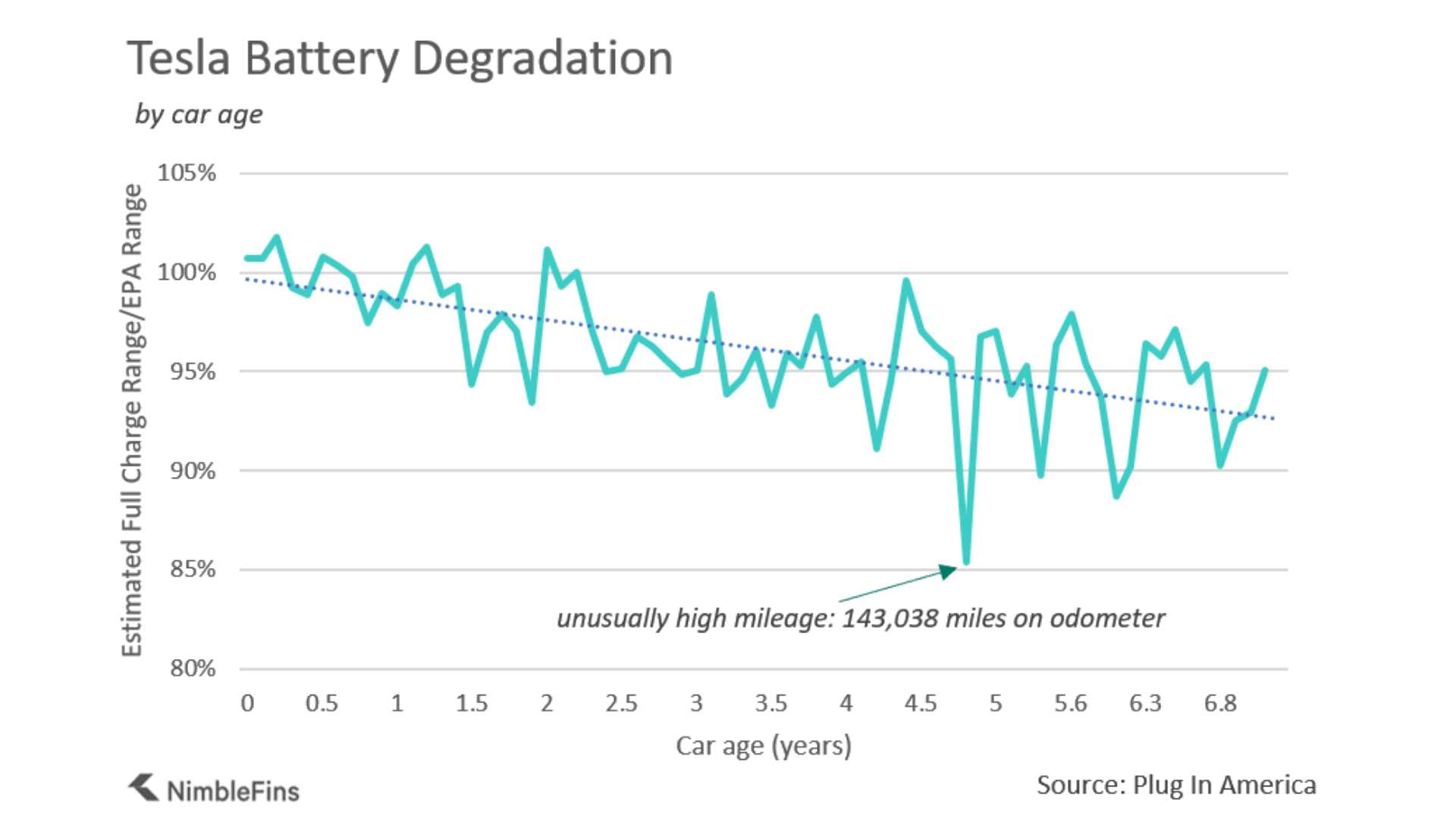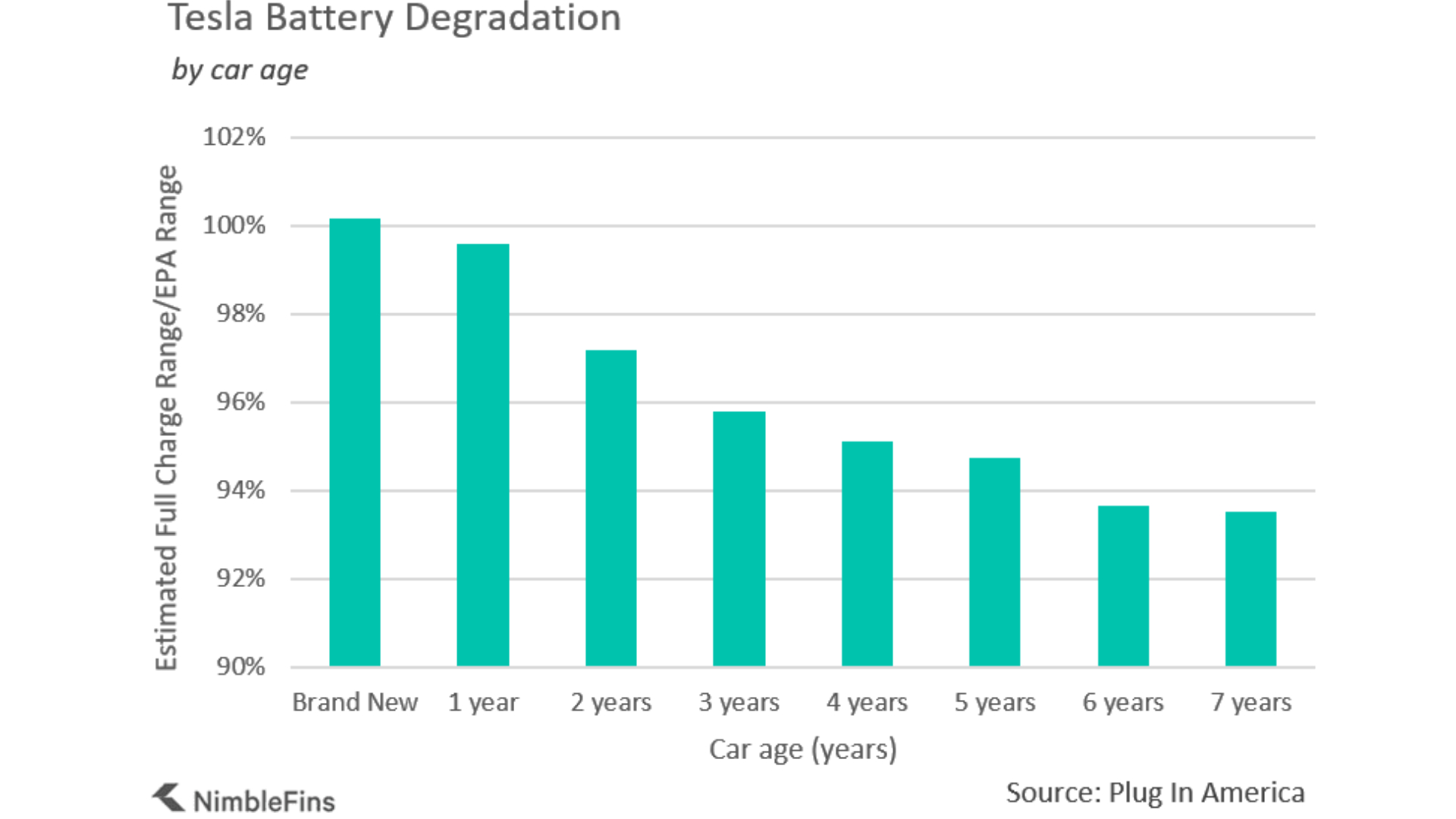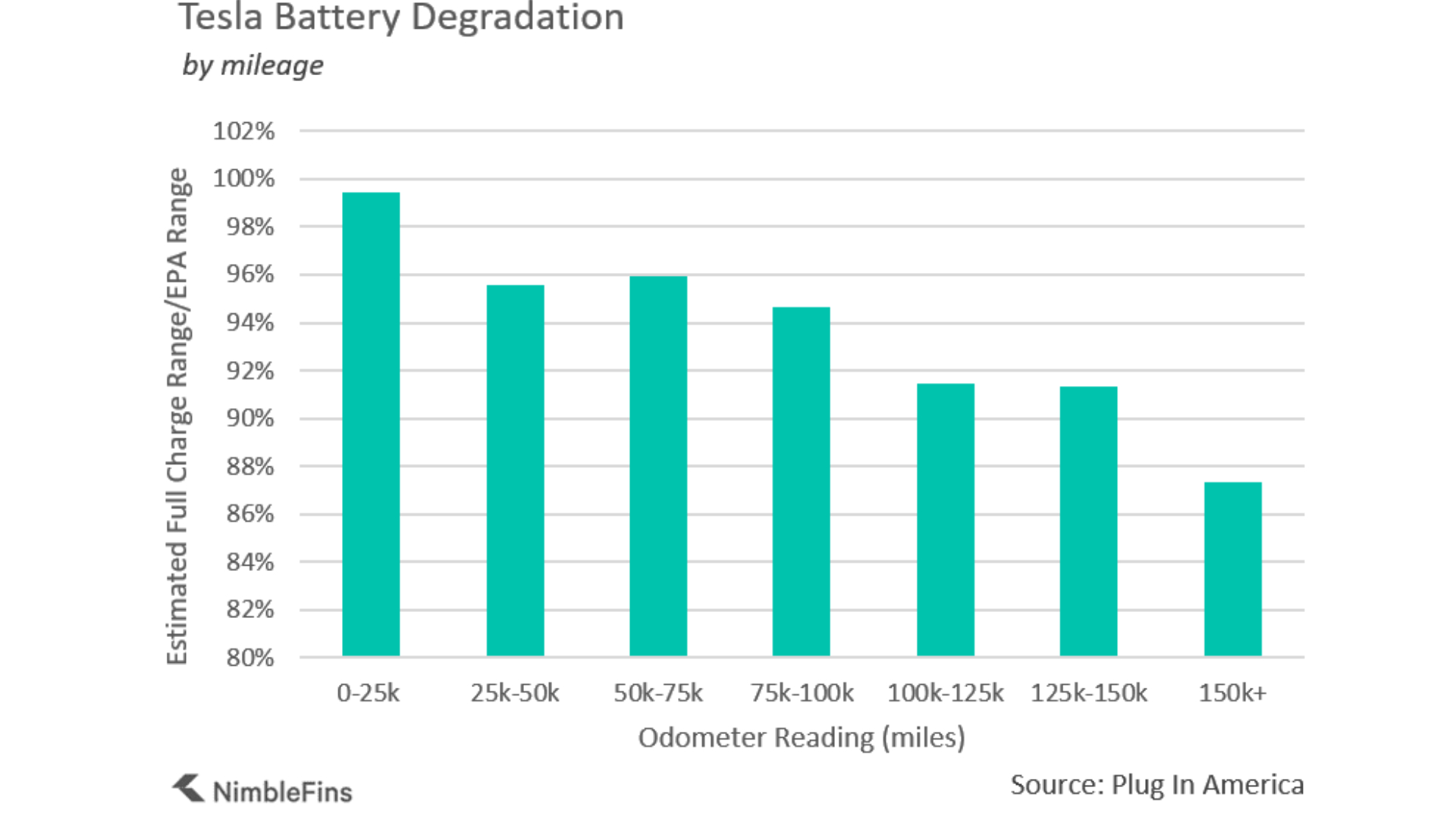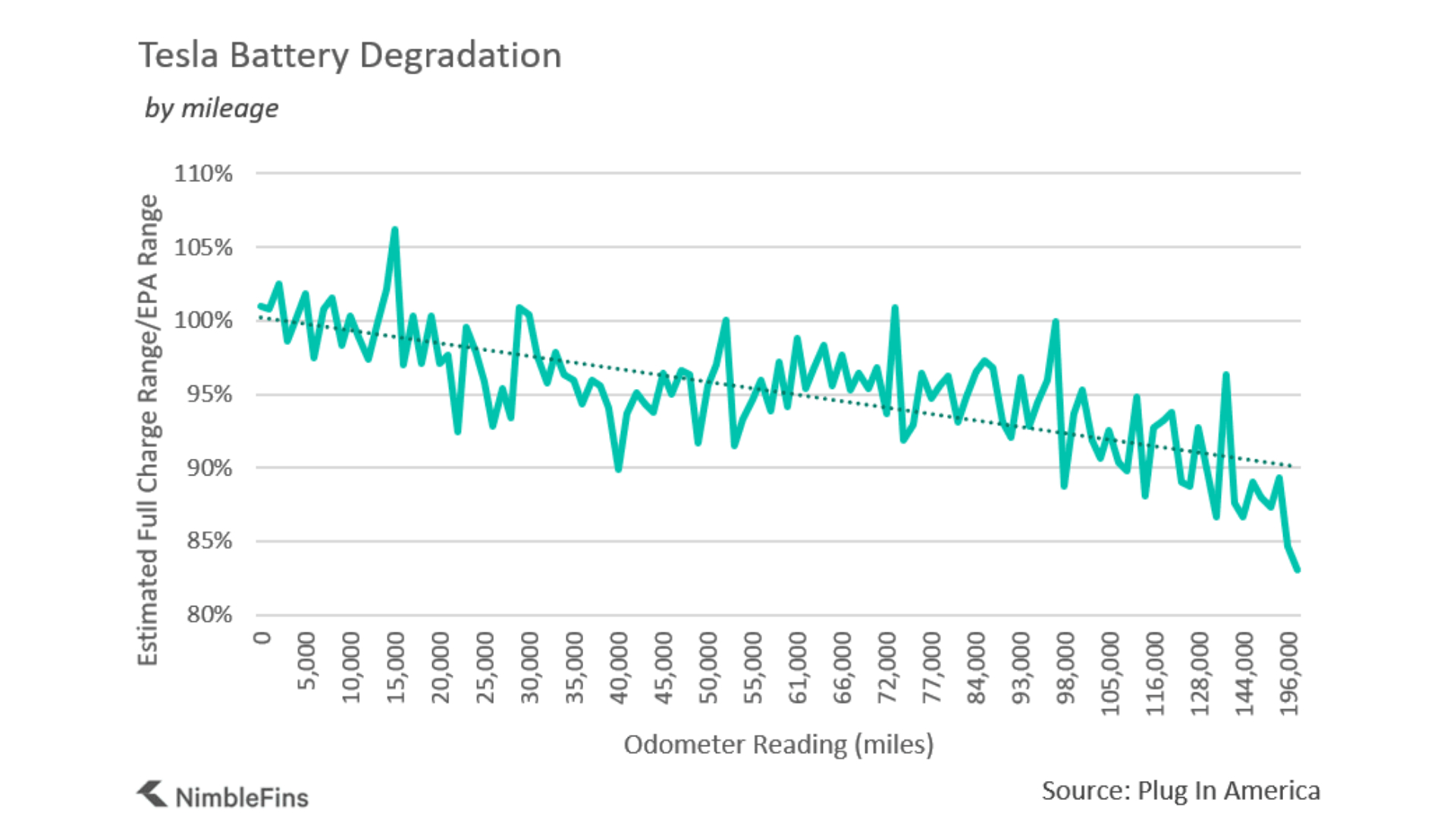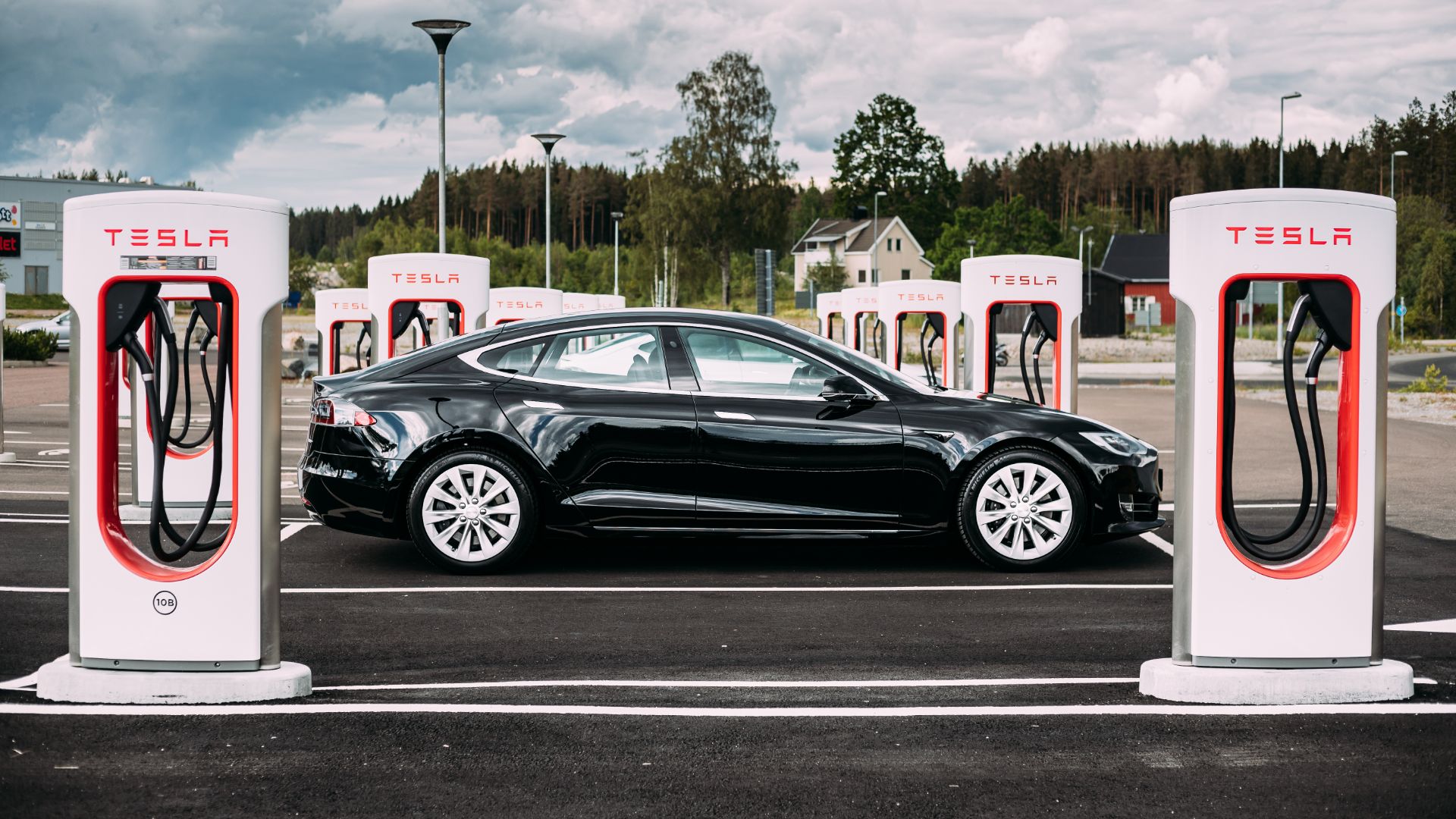
A real-world study of Teslas has revealed how much battery capacity the electric cars lose over time. And the good news is the losses are marginal: around one percent each year.
Just as an internal combustion car loses horsepower over time, electric cars have less battery capacity as they age. Think of it as your car’s fuel tank getting marginally smaller every year.
The Tesla research was carried out by Plug In America and analysed by NimbleFins. Five hundred Tesla Model S owners submitted data on the usage of their cars. These included when it was manufactured, bought, the battery size, the quoted range (when new) and the mileage the car has covered.
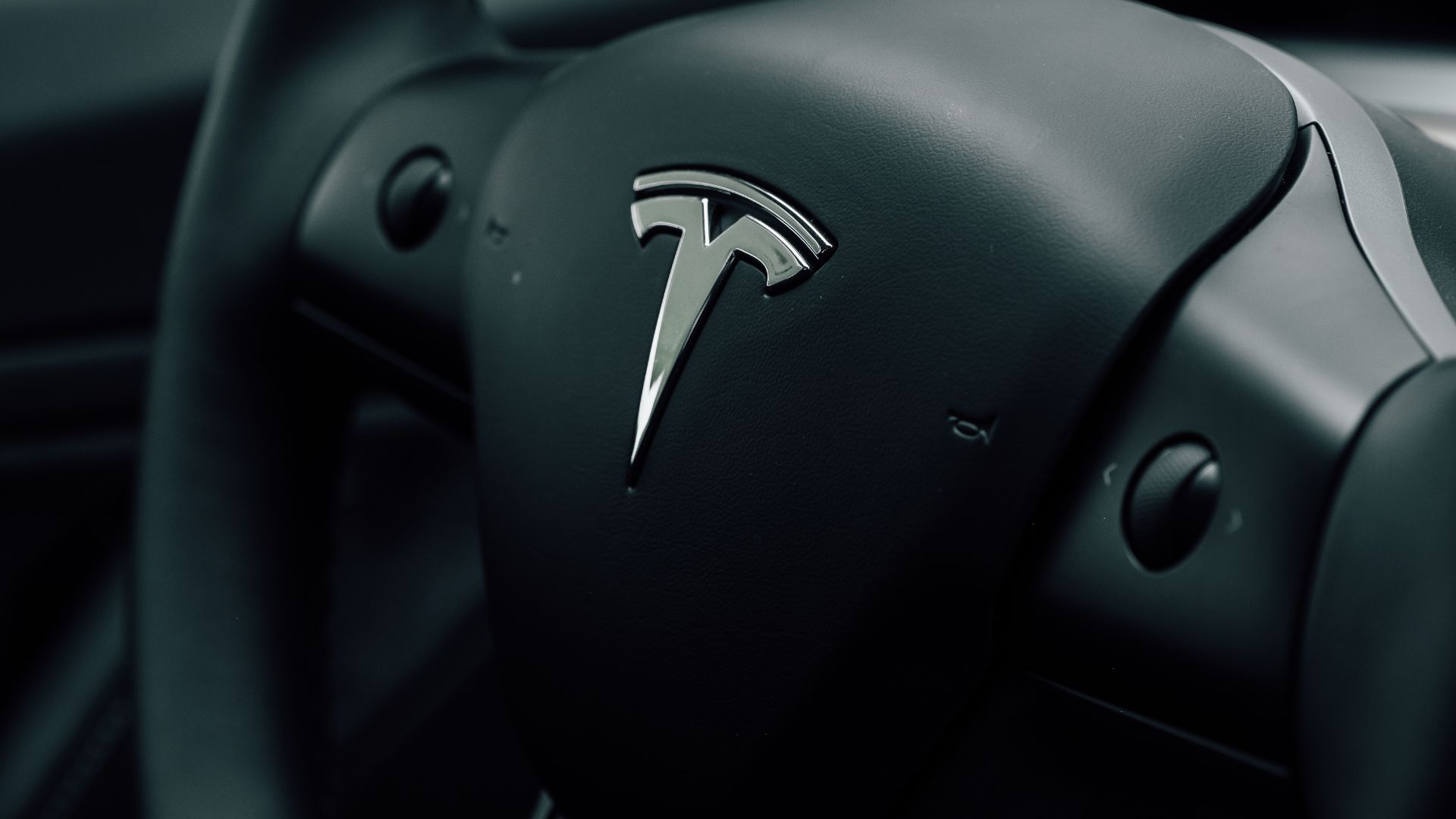
- Time is almost up for U.S. federal income tax credits on new Teslas
A general takeaway is that the more mileage an electric car has, the more battery capacity it will have lost. Remember, more mileage means more charging. The car with the highest mileage in the study, a Model S P85 with 232,442 miles, was capable of charging to a 220-mile capability. That’s 83 percent of its original 265-mile range when new. Up to around 150,000 miles, the cars seem to retain 90 percent of their charge capacity.
‘It’s interesting to see that a car with unusually high mileage for the age (over 143,000 miles for a car less than 5 years old) has more significant battery deterioration than a typical car of the same age,’ said the report.
‘This shows that mileage is also a considerable factor in how quickly a battery deteriorates—this makes sense, as more miles driven means more charge cycles, and it’s mostly the charge cycles that reduce a battery’s usable capacity.’
The average mileage in the UK is 7,600 a year. On that basis, an original high-end Model S would take 30 years to reach that unusually high mileage of 230,000 miles, or 20 years to reach 150,000 miles. With the assumption, of course, that time doesn’t play into that degradation.
It would be very interesting to test a seven-year-old Model S that hasn’t covered any miles.
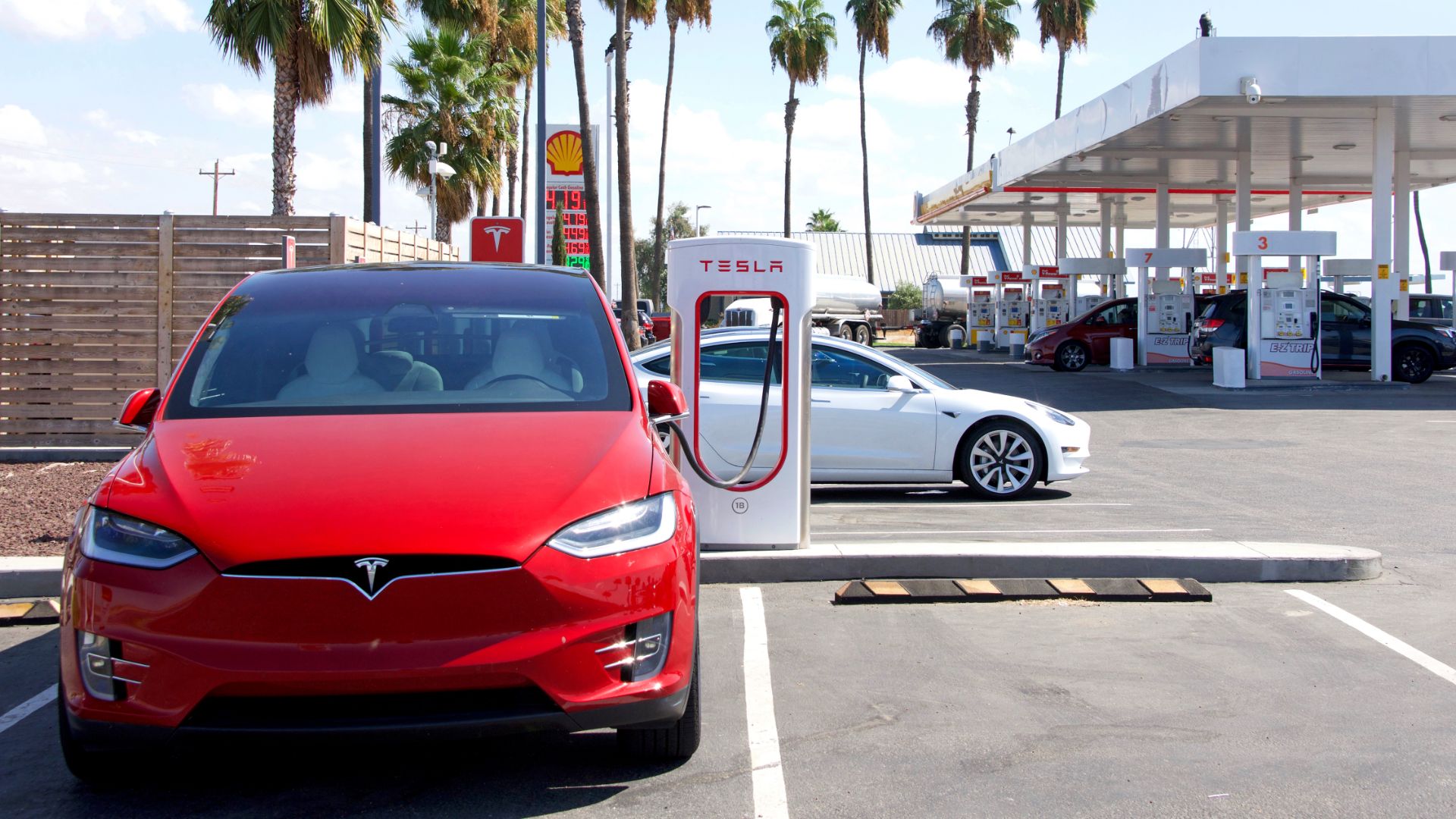
Overall, the results seem to show that battery tech used even in the very first Teslas is relatively robust. Many worry about the longevity of electric cars, but if their performance at what is considered end-of-life mileage (and even beyond) is as suggested, buyers can expect a decent life.
And as battery technology progresses, so too may the already impressive longevity.
